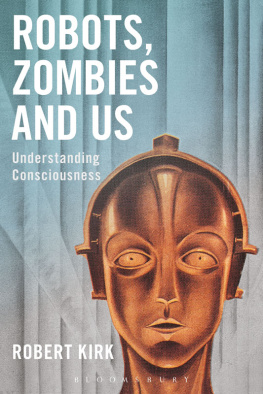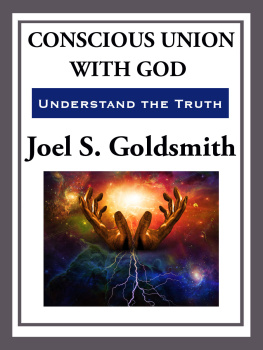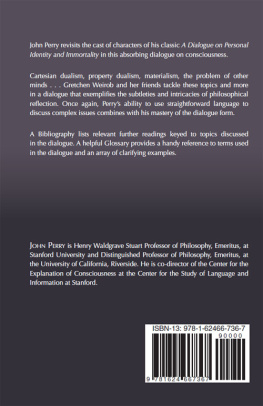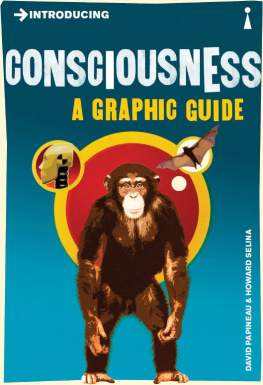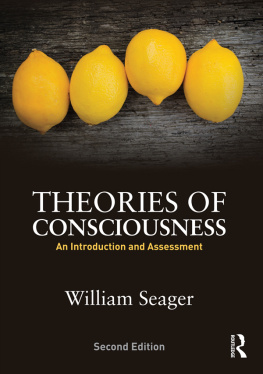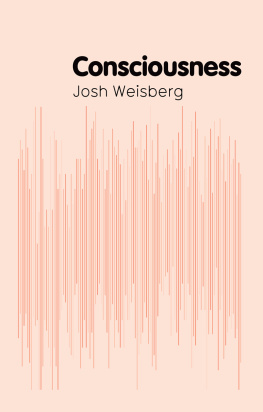Robots, Zombies
and Us
ALSO AVAILABLE FROM BLOOMSBURY
Advances in Experimental Philosophy of Mind,
edited by Justin Sytsma
The Bloomsbury Companion to Philosophy of Mind,
edited by James Garvey
Robots, Zombies
and Us
Understanding Consciousness
ROBERT KIRK
Bloomsbury Academic
An imprint of Bloomsbury Publishing Plc

To Janet
T he ancient idea of intelligent and possibly conscious machines soon gets us perplexed. Can machines really think? Could robots ever be conscious? In the first half of this book I introduce the main philosophical problems of consciousness; in the second I defend a certain approach to solving them (a controversial one, I have to say). The book is for anyone with a serious interest in these matters, not only students. No background in philosophy is necessary.
Robots are already doing work formerly done by people, and enthusiasts suggest some of them might even be conscious. Are they right? This book should help you make up your mind. But I shall not be much concerned with actual examples, which in any case would quickly be out of date. The robots discussed here are mostly imaginary, designed to illustrate fundamental philosophical points about consciousness and intelligence: points whose importance is independent of the details of particular cases. The zombies here are also a special philosophical sort: baffling even disturbing to think about, but not what you find in films, science fiction, or West Indian folklore (though more interesting).
There is wide agreement about what the main problems of consciousness are, but not on how to go about solving them. I argue that we are forced to take an approach according to which consciousness is a matter of the performance of functions. There is fierce opposition to this view. A prominent philosopher once said, If you are tempted to functionalism, I believe you do not need refutation, you need help (Searle 1992: 9solutions, and try to understand what consciousness is, there is (I shall argue) no serious alternative to functionalism although it has to be the right kind.
The Stanford Encyclopedia of Philosophy (plato.stanford.edu) provides many references and much guidance on the topics discussed. There is a very accessible spoken introduction to the philosophical problems of consciousness by a leading philosopher at http://www.portrait.gov.au/stories/david-chalmers. If you want more details of the approach sketched in this book, see my Zombies and Consciousness ([2005] 2008).
Warm thanks to David Hankinson and Nigel Howard, non-philosophers who read and generously commented on a draft. And special thanks to my wife Janet, for all kinds of encouragement and support.
Details of books and articles are given in the References. In the text they are referred to by names and dates. For example (Searle 1992) refers to his book The Rediscovery of the Mind, and (Searle 1992: 9) to page 9 of that book. References to sections of chapters in the text have the form 106.
1. Golden robots
H ephaistos was the Greek god of technology. Among other things, he made food trolleys with golden wheels (bling has always been with us): automata which, Homer tells us, took food and drink to the gods meeting places and returned of their own accord (Iliad, book 18). Being lame, he had also constructed something even more remarkable: servants to help him get about his shiny bronze house. These robots were made of gold but like living young women, and able to think and speak. Two and a half thousand years ago, of course, people would have had no idea how trolleys might be made to move about independently of human agency, let alone how robots could be intelligent; these would have been seen as typical examples of wonders worked by the gods.
Still, Hephaistos was a smith and general technologist, not known for magic, and the ancient Greeks might well have supposed that what enabled him to make his robots was supreme technical skill plus an understanding of the properties of natural materials. In any case I aim to get clear about consciousness without appealing to magic which would have amounted to giving up the search for genuine explanation and understanding.
There is a striking contrast between Hephaistos automatic food trolleys and his golden attendants. Some of todays robots seem to be genuinely intelligent. But the golden servant-girls dont just look and behave unlike the trolleys; they are said to be conscious and only a few misguided enthusiasts would argue that any of todays robots are really conscious. It doesnt even seem that technology has got far enough to allow us to make robots that could behave like us in all relevant ways, rather than just mimicking some aspects of human behaviour. The point, though, is that even if there are such robots, and even if some of them are genuinely intelligent, it is a further question whether they might also be conscious.
That question would not have troubled Hephaistos, since presumably all he needed was attendants who behaved as he wanted. That brings us to a central topic. There seems to be a difference between just behaving appropriately and really being conscious. Imagine we were faced by one of Hephaistos attendants, and that its behaviour was indistinguishable from ours, ignoring if possible that it had metal where we have flesh and blood. Would that mean it was conscious? Would it even be truly intelligent? As will become clear, these questions not only go deep, they would continue to puzzle us after even more technological success than has already been achieved. Some people maintain that both consciousness and intelligence require no more than the right behaviour; they are behaviourists of a philosophical kind. Psychological behaviourists, in contrast, hold or rather held that behaviour provides the only basis for a truly scientific psychology: their view was influential in the first half of the last century, but has been largely superseded by the neurosciences in the last decades. Philosophical behaviourism is rejected by most philosophers today; its difficulties have come to seem overwhelming. Still, it is too important and has too many attractive features to be dismissed out of hand. Discussing it will face us with considerations that any theory of consciousness must take into account; we shall examine it in the next chapter.
A strongly contrasting view is dualism. Dualists are so impressed by the differences between physical (or material) things and conscious experiences that they conclude that these are two totally different kinds of things. Dualism has it that no merely physical system could be conscious; at best it would be a non-conscious husk. According to one group of dualists, we have non-physical souls or spirits; others maintain there are no such things. But all dualists agree there is something about thoughts and feelings that the purely physical component of reality cannot provide for. You dont have to be a behaviourist to oppose dualism, by the way. Many philosophers .
Discussing whether either philosophical behaviourism or dualism might be true will force us to get clearer about the nature of consciousness and intelligence; thinking about robots will help us to avoid focusing too narrowly on purely human mentality. If some robots are intelligent or even conscious more to the point, if they could be then their mentality might well be unlike ours in some respects; yet, for our purposes it would be enough if we could understand what it would take to make them so.
2. Conscious and unconscious perception
If some of those thoughts strike you as too remote from real life to bother about, consider the difference between conscious and unconscious perception. Youre walking along, suddenly notice a cyclist riding straight at you, and dodge out of the way. What made you move? Spotting the cyclist of course because its by seeing, hearing, and otherwise perceiving things around us that we are able to act appropriately. Perception certainly seems to involve conscious experiences, at least most of the time. However, there is also such a thing as unconscious perception. When you were walking along just now you avoided bumping into a bollard on the pavement. Did you really see it, or did your semi-automatic avoidance result from unconscious perception? Another example: driving a car while thinking about something else, one can sometimes seem to have arrived at a certain place without consciously seeing things on the way. Is that unconscious perception? Such cases are inconclusive because they are consistent with the driver having simply forgotten the conscious experiences that nonetheless occurred. But other kinds of subliminal perception have been studied, and although there is dispute over how to decide whether there was really no conscious experience, it is hard to deny such things happen. (Evidence in one type of case turns up when a person in the experimental situation is confronted with an ambiguous word and asked to choose a particular reading. Faced subliminally with a flashed-up disambiguating word or image, they tend to favour the reading it suggests.)
Next page
